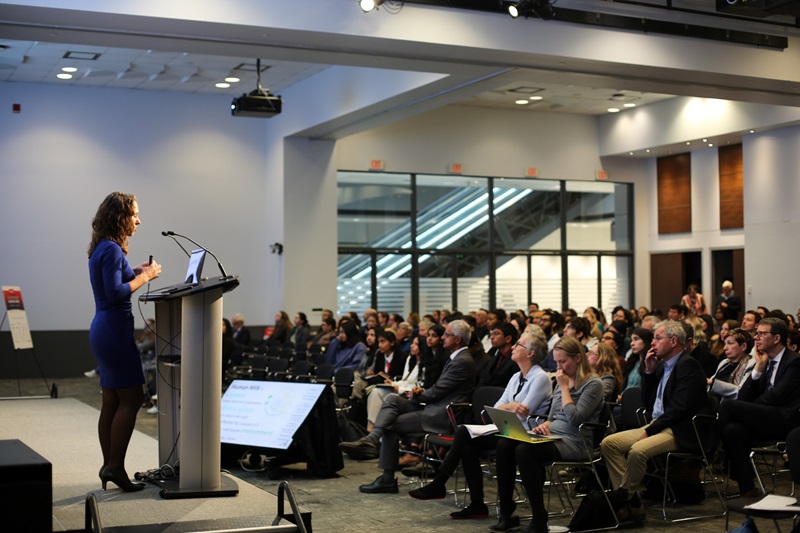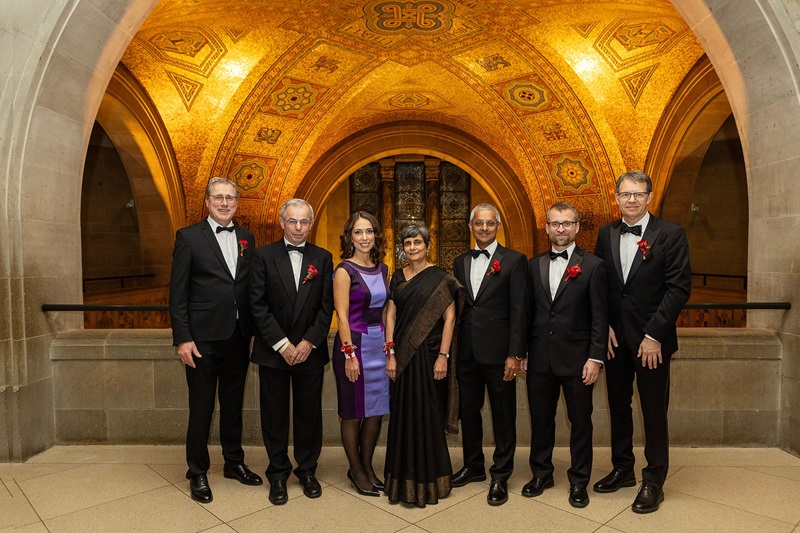Gagandeep Kang
.tmb-cfthumb_fb.png?Culture=en&sfvrsn=d36bbfeb_1)
THE WORK:
Gagandeep Kang received her training in medicine and microbiology at the Christian Medical College (CMC), Vellore, in southern India. She is Professor of Microbiology at CMC, where her research group has established substantial community-based birth cohort studies addressing childhood enteric infections, growth, and development for over 20 years. Using data and insights from these studies, alongside immunological, mechanistic, epidemiological and implementation research, Prof. Kang has generated extensive information on the complex interactions between the environment and infections in children, and the influence of prior infections on subsequent responses to vaccination. Through extensive, cross disciplinary work drawing on field epidemiology, molecular understanding of infectious agents and infections, clinical trials and policy implementation, she explored the complex relationships between enteric diseases, gut function, and physical and cognitive development in affected children. Prof. Kang conducted the largest single birth cohort study on rotaviral infections in the world, demonstrating that protection after a natural infection is lower in India than in developed countries, which has important implications for the control of diseases by vaccination.
As a physician-scientist, Prof. Kang has led key studies that contributed to the development and introduction of two Indian rotavirus vaccines into the national immunization program. These vaccines are now WHO prequalified and their introduction has begun in countries beyond India. She has expanded her research and collaborations to work on other enteric pathogens, particularly cholera and typhoid, with a view to further vaccine introductions; on nutritional and pharmacological interventions aimed at improving oral vaccine efficacy; and on the transmission and impact of, and vaccine effectiveness for COVID-19 in the Indian context.
THE IMPACT:
Gagandeep Kang has built an internationally recognized and competitive research program centred in India that prioritizes Indian needs while providing valuable and translatable insights to other regions affected by enteric infections. In addition to understanding the mechanism of infection and its effects on individuals, Kang’s group has used geographic information systems to connect virus prevalence at the community level to cost of illness studies, resulting in India becoming the only low-income country with comprehensive disease burden estimates for which cost-effectiveness of vaccination for multiple clinical outcomes could be predicted, as well as new vaccine roll-out programs. By 2019, all 26 million children born annually in India were eligible to receive the rotavirus vaccine, which has the potential to reduce infections, associated complications and death of vulnerable children.
In addition to excellent scientific research, Prof. Kang is an exemplary leader. Her approach to clinical and public health research uses a community base to identify problems that need to be addressed through laboratory science in India, and as needed, through international collaborations. In addition to her work in Vellore, India, she took on the challenge of leading the Department of Biotechnology’s Translational Health Science and Technology Institute (THSTI) from 2016 to 2020 to establish the translational science systems needed in the Indian medical research ecosystem. The programs initiated at the Institute have been critical to supporting the multiple vaccine development efforts of Indian vaccine manufacturers and have received global recognition.

.tmb-cfthumb_fb.png?Culture=en&sfvrsn=374218_1)





.tmb-cfthumb_fb.png?Culture=en&sfvrsn=87d51a9d_1)
